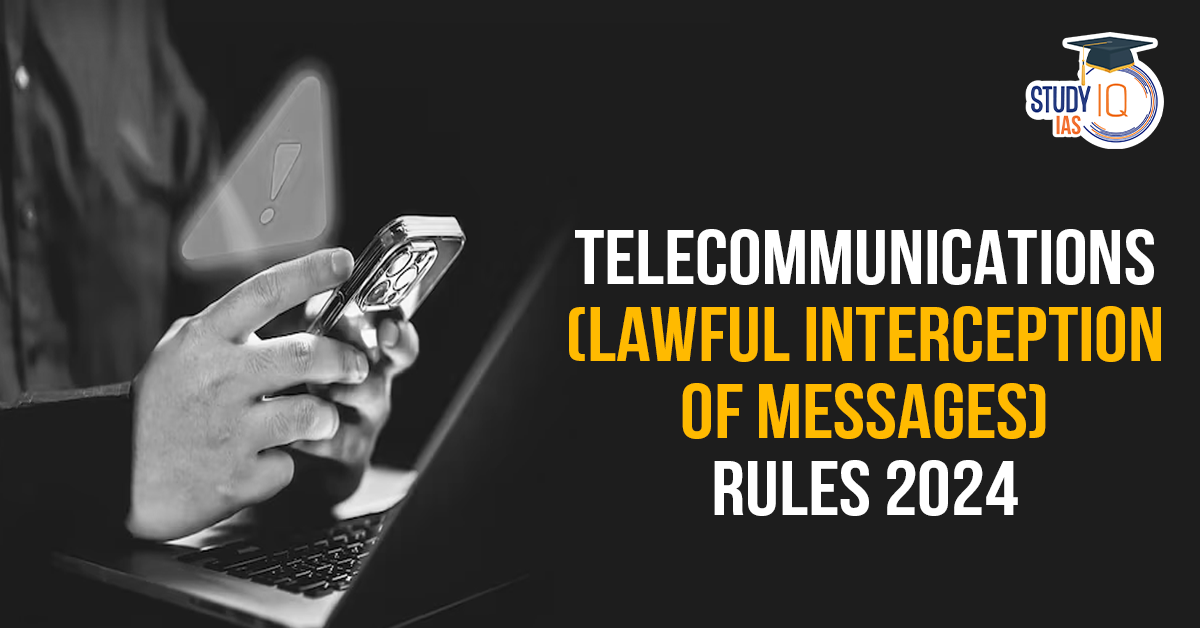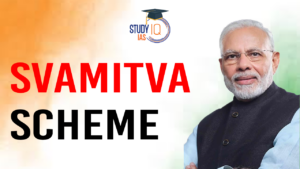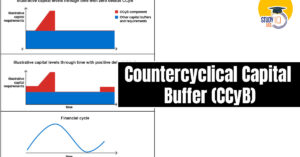Table of Contents
About Telecommunications (Lawful Interception of Messages) Rules, 2024
- Competent authorities for interception:
- Union Level: Union Home Secretary.
- State Level: Secretary to the State Government in charge of the Home Department.
- In ‘unavoidable circumstances’: An officer not below the rank of Joint Secretary to the Union Government can issue interception orders. (Term unavoidable circumstances is not defined).
- Authorisation of Interception: The Central Government may also authorise any law enforcement or security agency to intercept messages for reasons specified under Section 20(2) of the Telecommunications Act, 2023.
- Orders in Remote Areas or Operational Reasons: Following officers can issue interception orders:
- Central Level: Head or second senior-most officer of the authorised agency.
- State Level: Head or second senior-most officer (not below the rank of Inspector General of Police).
- These orders must:
- Be submitted to the competent authority within 3 working days.
- Be confirmed by the competent authority within 7 working days.
- If not confirmed, interception must cease, and messages intercepted cannot be used for any purpose, including court evidence.
- Record Maintenance and Destruction:
- Records related to interception must be destroyed every 6 months by the authorised agency and the review committee.
- Exception: Records may be retained if required for functional purposes or court directions.
- Oversight Mechanisms: To ensure compliance, a high-level review committee will be established
- Central Oversight Committee: Chaired by the Cabinet Secretary.
- Members: Secretary of Legal Affairs & Secretary of Telecommunications.
- State-Level Committees: Chaired by the Chief Secretary.
- Members: Secretary Legal Affairs & Secretary to the State Government, other than the Home Secretary.
- Central Oversight Committee: Chaired by the Cabinet Secretary.
| Indian Telegraph Rules, 1951 |
|
Key Differences from Rule 419A of the Indian Telegraph Rules, 1951
- Relaxation of Conditions for Interception:
- Previous rules allowed interception only in emergent cases.
- The new rules allow interception in remote areas or operational reasons, even if the competent authority cannot issue orders immediately.
- Limitations on Officers Authorised for Interception:
- Under Rule 419A, there was no limit on the number of Inspector General of Police (IGP)-rank officers at the State level authorised to intercept.
- The new rules restrict authorisation to only the head or second senior-most officer of the agency.
- Safeguard Against Unconfirmed Interceptions:
- Interceptions not confirmed within 7 days cannot be used for any purpose, including as evidence in court.
| Concerns Regarding the New Rules |
|


 5 Years of SVAMITVA Scheme and Its Benef...
5 Years of SVAMITVA Scheme and Its Benef...
 Places in News for UPSC 2025 for Prelims...
Places in News for UPSC 2025 for Prelims...
 Countercyclical Capital Buffer (CCyB): P...
Countercyclical Capital Buffer (CCyB): P...





















